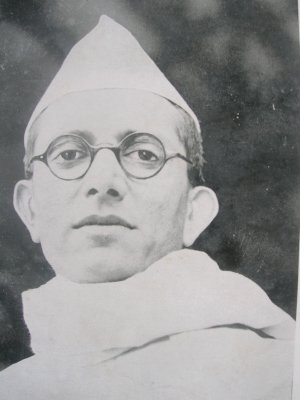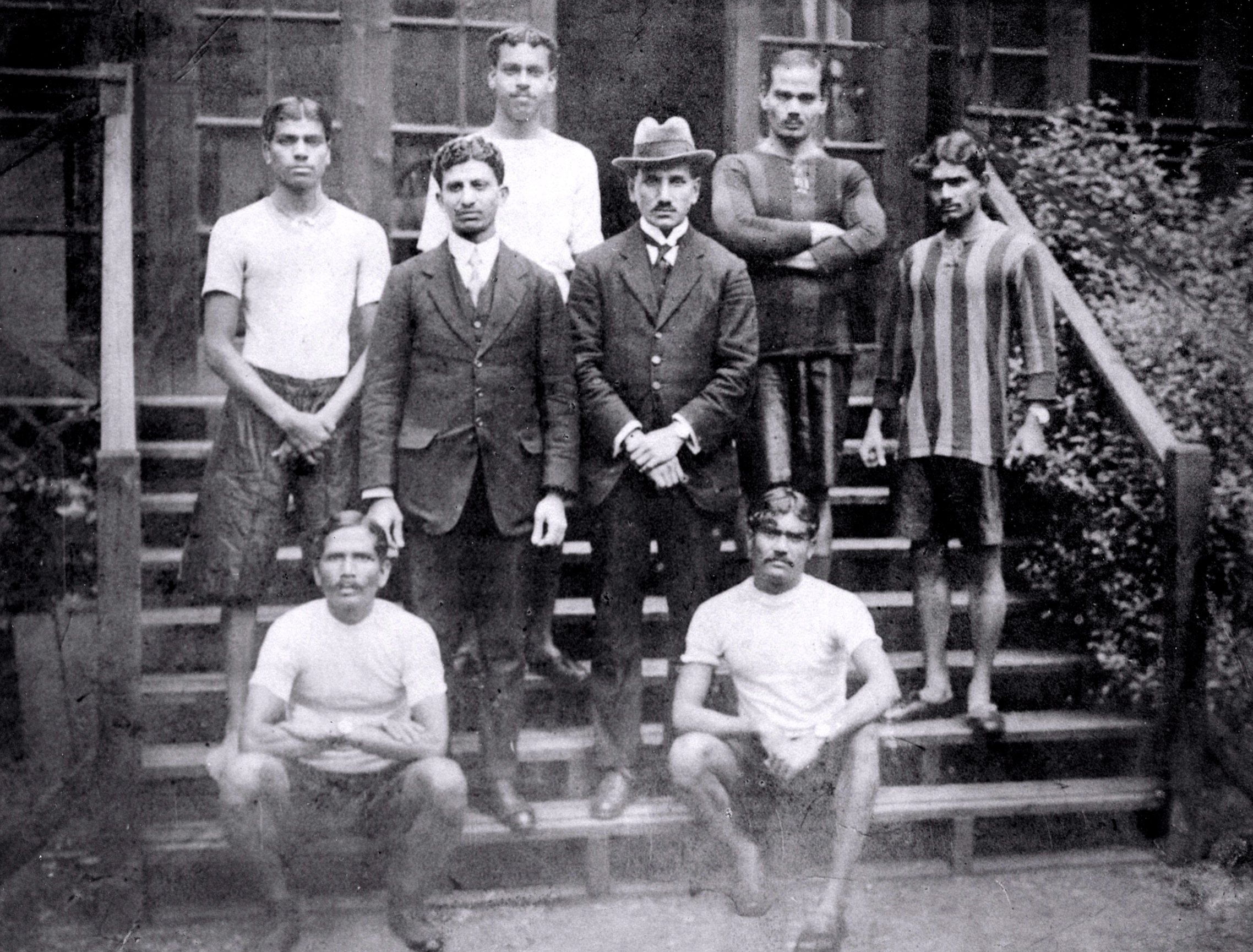|
1950 National Games Of India
{{unreferenced, date=February 2016 The 1950 National Games of India were held in Bombay. They were the 14th national games, and the second time the games had been held in Bombay. Background In late 1949, the Bengal Provincial Olympic Association, whose turn it was to hold the next national games, could not do so, and, at the Indian Olympic Association meeting on 24 October 1949, members from other associations were asked to stage these games but no province took the responsibility. The IOA President Maharaja of Patiala then asked Bombay to host the games; it agreed and had just three months to organise the event. Organising Challenges The Bombay Provincial Olympic Association tackled many challenges as it organised for the games. First, it approached the Bombay Government for assistance, and then Bombay Home and Revenue Minister Morarji Desai presided over the first Organizing Committee meeting for the games. Second, it sought housing for about 700 sportspersons; Major Gen ... [...More Info...] [...Related Items...] OR: [Wikipedia] [Google] [Baidu] |
National Games Of India
The National Games of India consist of various disciplines in which athletes from the different states of India participate against each other. The country's first few Olympic Games, now renamed as National Games, were held in North India (Delhi, Allahabad (now Prayagraj), Patiala, Madras (now Chennai), Calcutta (now Kolkata) and Bombay (now Mumbai). Indian Olympic Games (early National Games) In the early 1920s, the Indian chapter of the Olympic movement was born, and India participated in the 1920 Antwerp Olympics. As part of this movement, a provisional Indian Olympic Association (IOA) came about by 1924, and the Indian Olympic Games were held in Feb 1924 in Delhi to select Indian competitors for the 1924 Paris Olympics. IOA Secretary Dr. Noehren wrote about these games as follows: "The All India Athletic Carnival, the greatest and most representative gathering of its kind ever to be held in India, was recently celebrated in Delhi...Seventy athletes, representing practical ... [...More Info...] [...Related Items...] OR: [Wikipedia] [Google] [Baidu] |
Morarji Desai
Morarji Ranchhodji Desai (29 February 1896 – 10 April 1995) was an Indian independence activist and politician who served as the 4th Prime Minister of India between 1977 to 1979 leading the government formed by the Janata Party. During his long career in politics, he held many important posts in government such as Chief Minister of Bombay State, Home Minister, Finance Minister and 2nd Deputy Prime Minister of India. Following the death of Prime Minister Lal Bahadur Shastri, Desai was a strong contender for the position of Prime Minister, only to be defeated by Indira Gandhi in 1966. He was appointed as Deputy Prime Minister (as Minister of Finance) in Indira Gandhi's cabinet, until 1969. When Indian National Congress split in 1969 he became a part of the INC (O). After the controversial emergency was lifted in 1977, the political parties of the opposition fought together against the Congress (I), under the umbrella of the Janata Party, and won the 1977 election. Desa ... [...More Info...] [...Related Items...] OR: [Wikipedia] [Google] [Baidu] |
Anthony De Mello (cricket Administrator)
Anthony Stanislaus de Mello (11 October 1900, Karachi, Bombay Presidency, British India – 24 May 1961, Delhi, India) was an Indian cricket administrator and one of the founders of the Board of Control for Cricket in India. Background Born in Karachi, de Mello was educated in St. Patrick's High School, Sind College and Downing College at the University of Cambridge. He started his career in the services of the businessman R. E. Grant Govan in Delhi, and with whom he collaborated in founding the BCCI. Career BCCI and the CCI The BCCI had its origins in a meeting in February 1927 at the Roshanara Club in Delhi between Arthur Gilligan, the captain of the visiting Marylebone Cricket Club (MCC) team, De Mello, Grant Govan and the Maharaja of Patiala. The decision to form the board was taken at another meeting held at the same place on 22 November 1927 attended by representatives of various provinces and princely states. De Mello travelled with Grant Govan to England to orga ... [...More Info...] [...Related Items...] OR: [Wikipedia] [Google] [Baidu] |
Sohrab Bhoot
Sohrab H. Bhoot (or Sorabji Bhoot or Sorab Bhoot) (1891 – 9 January 1984) was an Indian Olympian administrator and sports administrator in the early and middle 20th century. Biography Bhoot's major accomplishments were to serve as: * Manager of India's first Olympic team at the 1920 Olympics in Antwerp. He was also a selector and administrator for the Indian team at four other Olympics. * President of the National Cycling Federation of India. Bhoot and Jankidas co-founded this national cycling federation in 1946. Under Bhoot's management, the Indian cycling team made its Olympic debut at the 1948 Olympics in London. Bhoot also served as President of the Asian Cycling Federation. Overall, he took the Indian cycling team to several international cycling events and world cycling championships from the late 1940s until the early 1960s. * General Secretary of the Bombay Provincial Olympic Association—in this capacity he was also Organising Secretary for, and played a majo ... [...More Info...] [...Related Items...] OR: [Wikipedia] [Google] [Baidu] |
1950 In India
Events in the year 1950 in the Republic of India. India got its independence from Britain in 1947, but still had a King. George VI, the King of United Kingdom was the King of India as well. Some provisions of the Indian Constitution had come into force on November 26, 1949. January 26, 1950 had been chosen as the day for full implementation of the Constitution making India a Republic and officially ending its ties to British monarchy. Dr Rajendra Prasad was sworn in as the first President of the country on January 26, 1950. Just a day before the birth of the Republic of India, the Election Commission of India was born. Main body to devise and revise plans for the progress of India was envisaged, The Planning Commission. Liaquat-Nehru Pact or Delhi Pact was signed between India and Pakistan in April. Refugees were allowed to return to their native country unmolested to dispose of their property in either country. India and Nepal officially became friends. Though, India an ... [...More Info...] [...Related Items...] OR: [Wikipedia] [Google] [Baidu] |
Sports Competitions In Mumbai
Sport pertains to any form of competitive physical activity or game that aims to use, maintain, or improve physical ability and skills while providing enjoyment to participants and, in some cases, entertainment to spectators. Sports can, through casual or organized participation, improve participants' physical health. Hundreds of sports exist, from those between single contestants, through to those with hundreds of simultaneous participants, either in teams or competing as individuals. In certain sports such as racing, many contestants may compete, simultaneously or consecutively, with one winner; in others, the contest (a ''match'') is between two sides, each attempting to exceed the other. Some sports allow a "tie" or "draw", in which there is no single winner; others provide tie-breaking methods to ensure one winner and one loser. A number of contests may be arranged in a tournament producing a champion. Many sports leagues make an annual champion by arranging gam ... [...More Info...] [...Related Items...] OR: [Wikipedia] [Google] [Baidu] |



